Published in the wake of the Tokyo 2020 Games, these contributions are short and accessible. Authors provide authoritative analysis of the Olympics and Paralympics, including research findings and new theoretical insights. Contributions come from a rich array of disciplinary influences, including media, communication studies, cultural studies, sociology, political science, and psychology.
1. The typhoon games (Toby Miller)
2. A green Olympic legacy for future generations? (Brett Hutchins and Ben Glasson)
3. The rise of critical consciousness in Japan: An intangible and unintended legacy of the Tokyo 2020 Olympic Games (Koji Kobayashi)
4. Host city and mega-events: Olympic legacy in Japan (John Horne)
5. Lessons from Tokyo: the impact of the Paralympics in Japan (Dennis J. Frost)
6. Let’s play! Inspiring an inclusive mindset with a hands-on Paralympic experience for children and teenagers in Japan (Olga Kolotouchkina and Carmen Llorente-Barroso)
7. The Olympic & Paralympic sponsorship without category exclusivity: Background of sponsorship exclusivity in Olympic and Paralympic Games (OPG) (Shintaro Sato)
8. Power sharing: Olympic sponsorship and the athlete’s personal brand (Bettina Cornwell)
9. What happened to Rule 40 at Tokyo 2020? (John Grady)
10. The Olympic Games and ambush marketing via social media (Gashaw Abeza)
11. The soft power of the Olympics in the age of Covid 19 (J. Simon Rofe)
12. Tokyo 2020 Olympic Games, nationalism, identity and soft power (Gayle McPherson and Solomon Ilevbare)
13. Tokyo 2020, East Asian geopolitics and Olympic diplomacy (Jung Woo Lee)
14. Cultural programming at Tokyo 2020: the impossible Olympic festival city? (Beatriz Garcia)
15. Anti-sex beds? Fake news! : why this video went massively viral? (Maki Hirayama)
16. Counting cases, counting medals: Containing the Olympic contagion during the Tokyo Games (Courtney M. Cox)
17. Public relations as the key in the 2020 Tokyo Olympic and Paralympic Games (Argyro Elisavet Manoli and Sungkyung Kim)
18. The Tokyo 2020 Organizing Committee’s veil of effective public relations to help save itself and the start of the Games (Karen Hartman)
19. Environmental leadership showcased in the Olympic Games (Brian P. McCullough)
20. Simone Biles and prioritizing athlete well-being (Kathleen Bachynski)
21. Pride and burden of striving for perfection at the Olympics (Wycliffe Njonorai)
22. Deliver a medal or apologize: A daunting task imposed on Japanese Olympians (Hatsuko Itaya)
Section 2: Media Coverage & Representation
23. What place is this? Tokyo’s made-for-television Olympics (David Rowe)
24. How do we truly interpret the Tokyo Olympic ratings? (Andrew C. Billings)
25. ‘A Games like no other’: The demise of FTA live Olympic sport? (Raymond Boyle)
26. The fleeting nature of an Olympic meme: Virality and IOC TV rights (Merryn Sherwood)
27. Tokyo 2021: the TV Olympics (Peter English)
28. The Olympic Channel: insights on its distinctive role in Tokyo 2020 (Xavier Ramon)
29. Reshaping the Olympics media coverage through innovation (José Luis Rojas Torrijos)
30. Temporality of emotionalizing athletes (Sae Oshima)
31. New Olympic sports: the mediatization of action sports through the Olympic Games 2020 Tokyo (Thomas Horky)
32. Media wins medal for coverage of athletes as people, instead of entertainers (Ryan Broussard)
33. Reporting at a distance. Stricter working conditions and demands on sports journalists during the Olympics (Jana Wiske)
34. Nigeria: Olympic Games a mystery for rural dwellers in Lagos (Unwana Akpan)
35. Tokyo 2020: A look through the screen of Brazilian television (William Douglas de Almeida and Katia Rubio)
36. Equestrian sports in media through hundred Olympic years. A roundtrip from focus to shade and back again? (Susanna Hedenborg and Aage Radmann)
37. An Olympic utopia: separating politics and sport. Primary notes after analyzing the opening ceremony media coverage of mainstream Spanish sport newspapers (Xavier Ginesta)
38. “Everything seemed very complicated”: Journalist experiences of covering the Tokyo 2020 Paralympic Games (Veronika Mackova)
39. “A ceremony for television”: the Tokyo 2020 media ritual (Andressa Fontes Guimarães-Mataruna, Adriano Lopes de Souza, Renan Petersen-Wagner, Doiara Silva dos Santos, Leonardo José Mataruna-Dos-Santos and Otávio Guimarães Tavares da Silva)
40. The paradox of the parade of nations: A South Korean network’s coverage of the opening ceremony at the 2020 Tokyo Olympics (Ji-Hyun Ahn)
41. Simone Biles, journalistic authority, and the ideology of sports news (Michael Mirer)
42. Representing high performance: Brazilian sports journalists and mass communication professionals discuss their philosophies on producing progressive Paralympic coverage (Fernanda Silva and John Watson)
43. How digital content creators are shaping meanings about world class para-athletes (Carolyn Jackson-Brown)
44. Is the Paralympic Games a second-class event? (Tatiane Hilgemberg)
45. Representations of gender in media coverage of the Tokyo 2020 Paralympic Games (Toni Bruce)
46. Reshaping the superhuman to the super ordinary: Observations on the Tokyo 2021 Paralympic games through Australian broadcasting coverage (Simon Darcy and Tracey J. Dickson)
47. Super heroes among us: A brief discussion of using the superhero genre to promote Paralympic Games and athletes (Cody T. Havard)
48. ”Unity in Diversity” – The varying media representations of female Olympic athletes (Riikka Turtiainen)
49. Why we need to see the “ugly” in women’s sports (Erin Whiteside)
50. Twitter conversations on Indian female athletes in Tokyo (Kulveen Trehan)
51. Between sexualization and de-sexualization: the representation of female athletes in Tokyo 2020 (Jörg-Uwe Nieland)
52. Megan Rapinoe: The scary Bear for many Americans? (Molly Yanity)
53. Representations of gender in the live broadcast of the Tokyo Olympics (Toni Bruce)
54. “The gender-equal games” vs “The IOC is failing black women”: narratives of progress and failure of the 2020 Tokyo Olympics (Cheryl Cooky)
55. The male and female sports journalists divide on the Twittersphere during Tokyo 2020 (Haim Hagay and Alina Bernstein)
Section 3: Performance & Identity
56. ‘The Games they are a-changin’’: footnotes on Olympic athletics in transition post-Tokyo 2020 (Christopher D. Tulloch)
57. Tokyo 2020: athlete welfare and coping with new anxieties (Emma Kavanagh and Keith D. Parry)
58. Tokyo Olympics: When athletes are faced with the impossible (Dikaia Chatziefstathiou)
59. Twitter helps normalize discussions on mental health beyond athletes (Yuya Kiuchi)
60. Communication of athlete risk with head injuries in the 2020 Olympics (David Cassilio)
61. Racist slurs, stubborn animals, and colonial fear (Karsten Senkbeil)
62. Tokyo 2021 and the LGBTQ athlete (Rory Magrath)
63. The media coverage of the Tokyo 2021 Paralympic Games: Visibility, progress and politics (Emma Pullen, Laura Mora and Michael Silk)
64. It’s complicated: Disability media and the Paralympic Games (Katie Ellis)
65. Companies escape attention as debate on women’s uniform rages (Steve Bien-Aime, Melanie Formentin and Michelle Crowley)
66. Policing the uniforms and sportswear of Tokyo 2020: Commercialism in the name of competition (Linda Fuller)
67. Despite “Gender Equal Olympics,” focus still on what women are wearing (Adrianne Grubic)
68. Black women and Tokyo 2020 games: a continued legacy of racial insensitivity and exclusion (Manase Kudzai Chiweshe)
69. Naomi Osaka Bearing the Torch for a Mixed Race Japan (Jennifer McClearen)
70. Bodies of change: Women’s artistic gymnastics in Tokyo 2021 (Carly Stewart and Natalie Barker-Ruchti)
71. How the female athletes of the Tokyo Olympics are reframing the way we think about motherhood (Kim Bissell and Tyana Ellis)
72. When women aren’t women enough to compete (Anne Osborne)
Section 4: Fandom & National Identity
73. Home advantage in the Summer Olympic Games: evidence from Tokyo 2020 and prospects for Paris 2024 (Girish Ramchandani)
74. Fans as MVP, or the need for sensuous audiences in sport (Meredith Bagley)
75. Silence in the stands: Does it matter for fans? (Dorothy Collins)
76. Red, white, and rivalry: A brief discussion of United States rivalry at the Tokyo Olympic Games (Cody Havard)
77. Empty stadiums and the other sites of Olympic fandom (Lou Antolihao)
78. Sports betting and the branded purity of the Olympics (Jason Lopez)
79. National and ethnic Chinese identities on the Indonesian badminton court (Friederike Trotier)
80. How much is too much home-nation focus in Olympic coverage? (Andrew Billings)
81. The Tokyo 2020 Olympic Games: British imperial identity affirmed (Edward Loveman)
82. Communicating corporate social responsibility at the Tokyo 2020 Olympic Games (Jake Kucek)
83. Americans on ideological left more engaged in Summer Olympics (Darin W. White)
84. South Korea’s changing status and perspective on Japan (Seok Lee)
85. The Men’s 1500 metres: Not quite erasing the ghosts of history (Garry Whannel)
86. Ghana: Poor local organizing, and absence of football team dampens interest (Ernest Acheampong and Ralph Frimpong)
87. Historical disputes, national identity, and the South Korea-Japan summit that did not happen (Guy Podoler)
88. Pop culture diplomacy: Japan’s use of videogames, anime to promote the Olympics and appeal to younger audiences (Adolfo Gracia Vázquez)
89. At the intersection of COVID-19 and Tokyo Olympics 2020: Vlogs and the expression of Chinese nationalist sentiments (Tianwei Ren)
90. Fandom and digital media during the Tokyo 2020 Olympic Games: A Brazilian perspective using @TimeBrasil Twitter data (Renan Petersen-Wagner, Andressa Fontes Guimarães-Mataruna, Adriano Lopes de Souza, Doiara Silva dos Santos, Leonardo José Mataruna-Dos-Santos and Otávio Guimarães Tavares da Silva)
91. National hierarchy in Israeli Olympic discourses (Ilan Tamir)
Section 5: Politics of Sport
92. At Tokyo Games, athlete activism takes front row seat despite IOC’s attempts to silence athletes (Yannick Kluch, Nina Siegfried, Mary A. Hums and Eli A. Wolff)
93. Transgender participation at the Tokyo Olympics: Laurel Hubbard and a media tempest (Holly Thorpe, Shannon Scovel and Monica Nelson)
94. The sacred space of the Olympics (Anthony Cavaiani)
95. Media frames and the ‘humanity’ of athletes (Adam Rugg)
96. We want reform (Shaun M. Anderson)
97. In search of voice: behind the remarkable lack of protest at the Tokyo Paralympics (Filippo Trevisan)
98. The revolt of the Black athlete continues (Letisha Engracia Cardoso Brown)
99. WeThe15 shines a spotlight on disability activism (Damian Haslett and Brett Smith)
100. Will #WeThe85 finally include #WeThe15 as a legacy of Tokyo 2020? (Simon Darcy and Tracey J. Dickson)
101. Activism starts with representation: IPC Section 2.2 and the Paralympics as a platform for social justice (Nina Siegfried, Dr. Yannick Kluch, Mary A. Hums and Eli A. Wolff)
102. The colonization of the athletic body (Billy Hawkins)
103. Forced hijab and female athletes in postrevolutionary Iran (Shahrzad Enderle)
104. Pay equity & the Tokyo 2020 Olympics (Ellen Staurowsky)
105. Equal remuneration for a Paralympian (Mark Brooke)
106. Rooting for U.S. Olympians: Patriotism or polarization? (Amy Bass)
107. Anti-Olympics activism (Jules Boykoff)
108. The new kids on the block: Action sports at the Tokyo Olympic Games (Holly Thorpe and Belinda Wheaton)
109. Is there space on the podium for us all? (Jan Burns)
110. Softball’s field of Olympic dreams (Pamela Creedon)
111. Now you see them, now you don’t: Absent nations at Tokyo Paralympic Games (Nancy Quinn and Laura Misener)
112. The Tokyo Paralympics as a platform for change? Falling well short of sport and media ‘opportunities for all’ (Gerard Goggin and Brett Hutchins)
113. Tokyo 2020 Paralympics: inspirations and legacies (David McGillivray)
114. What social media outrage about Sha’Carri Richardson’s suspension could mean for the future of anti-doping policies (Natalie Brown-Devlin, Gary Wilcox, and Kristen Leah Sussman)
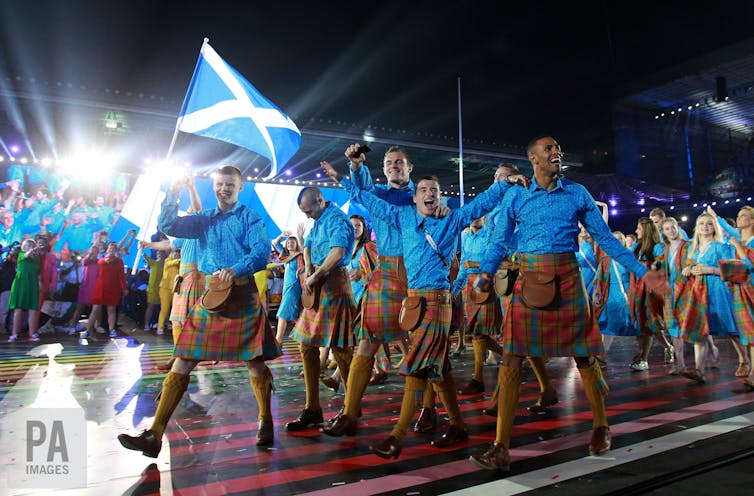
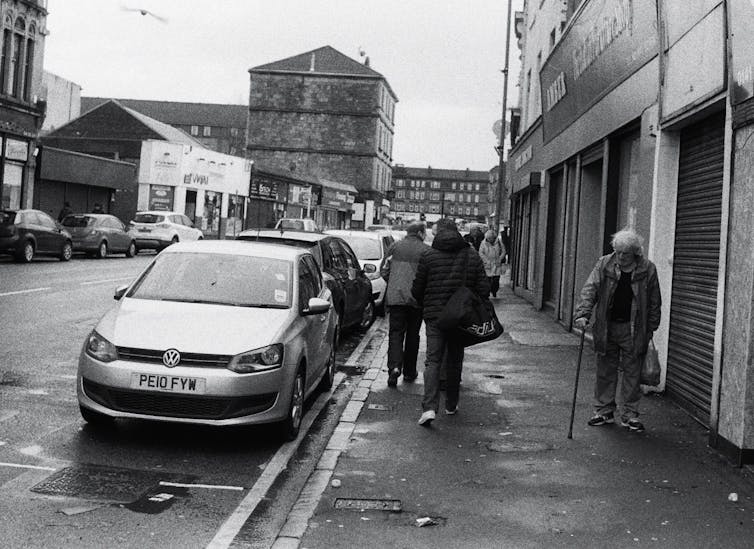
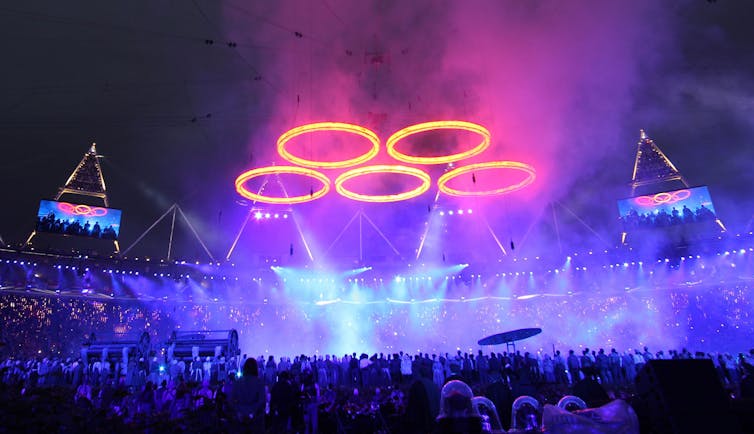
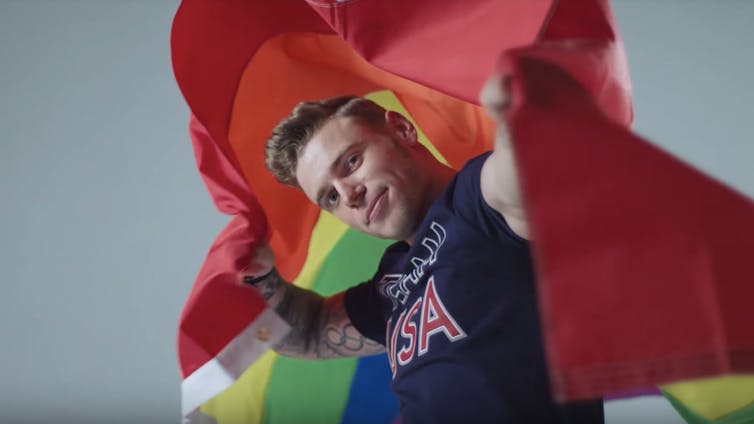
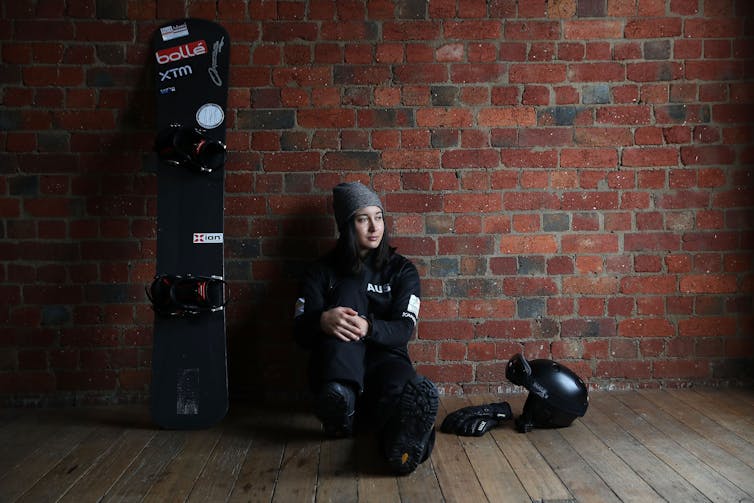
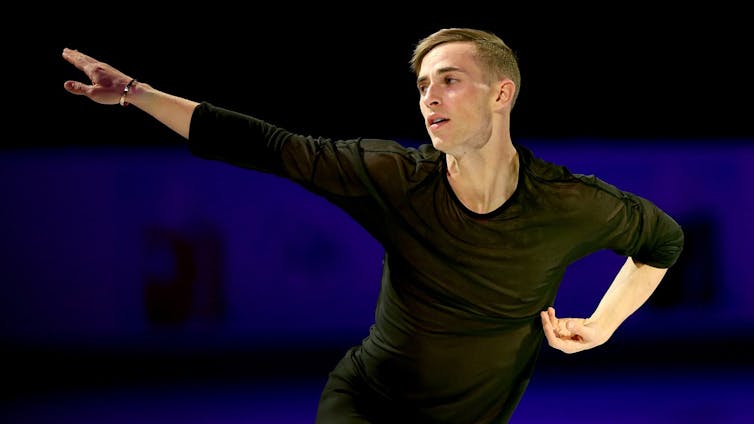




 Watch this excellent short video from BU’s
Watch this excellent short video from BU’s  Watch this excellent short video from BU’s Dr Richard Shipway who discusses the 2012 Olympic and Paralympic games and how his research has been used by local councils to improve the delivery of the games in the area.
Watch this excellent short video from BU’s Dr Richard Shipway who discusses the 2012 Olympic and Paralympic games and how his research has been used by local councils to improve the delivery of the games in the area.










 Conversation article: London Marathon – how visually impaired people run
Conversation article: London Marathon – how visually impaired people run Horizon Europe News – December 2023
Horizon Europe News – December 2023